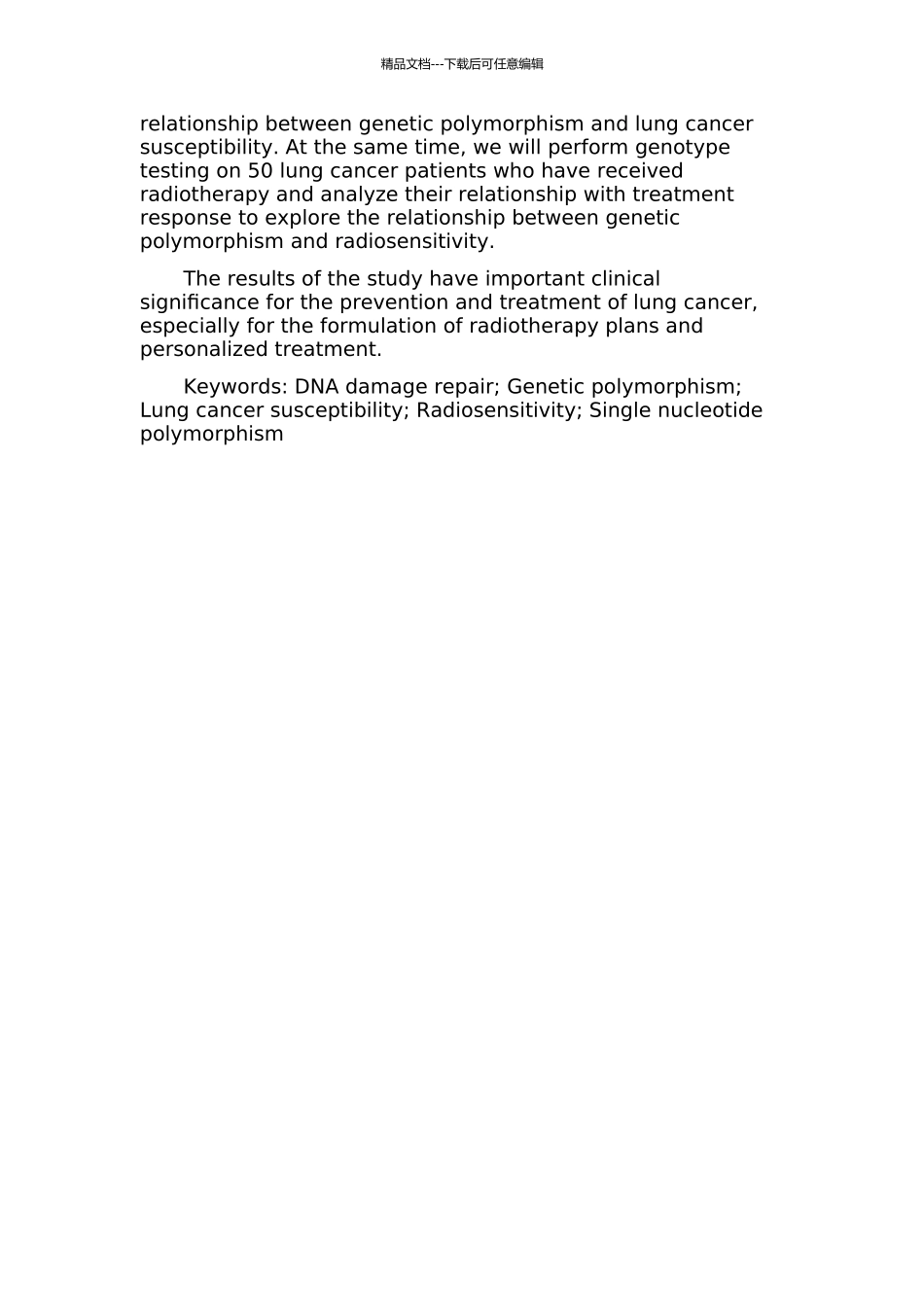精品文档---下载后可任意编辑DNA 损伤修复相关基因多态性与肺癌易感性和放射敏感性关系的讨论的开题报告摘要肺癌是全球发病率和死亡率都很高的恶性肿瘤,放射治疗是其常用的治疗措施之一。但在放射治疗中,患者的放射敏感性不同,这可能与基因多态性有关。此外,DNA 损伤修复是一种常见的细胞自我修复机制,基因多态性可能会影响 DNA 损伤修复能力,从而影响肺癌的易感性。本讨论将探讨基因多态性与肺癌易感性和放射敏感性的关系。我们将选择 DNA 损伤修复相关基因(如 XRCC1、XRCC3、XPC、hOGG1等)中的常见多态性单核苷酸多态性(SNP)作为讨论对象。通过对200 例确诊为肺癌的患者进行基因型检测,并与 200 名非肺癌健康人群进行比较分析,讨论基因多态性与肺癌易感性的关系。同时,我们将对50 例接受过放射治疗的肺癌患者进行基因型检测,并分析其与治疗反应的关系,以探讨基因多态性与放射敏感性的关系。讨论结果对于肺癌的预防和治疗具有重要的临床意义,尤其是对于放射治疗方案的制定和个性化治疗具有重要意义。关键词:DNA 损伤修复;基因多态性;肺癌易感性;放射敏感性;单核苷酸多态性AbstractLung cancer is a malignant tumor with high incidence and mortality rates worldwide, and radiotherapy is one of the commonly used treatment measures. However, the radiosensitivity of patients is different, which may be related to genetic polymorphism. In addition, DNA damage repair is a common self-repair mechanism of cells, and genetic polymorphism may affect the ability of DNA damage repair, thereby affecting the susceptibility of lung cancer.This study will explore the relationship between genetic polymorphism and susceptibility and radiosensitivity of lung cancer. We will select common single nucleotide polymorphisms (SNPs) in DNA damage repair-related genes (such as XRCC1, XRCC3, XPC, hOGG1, etc.) as the objects of study. By performing genotype testing on 200 diagnosed lung cancer patients and comparing and analyzing them with 200 healthy non-lung cancer populations, we will study the 精品文档---下载后可任意编辑relationship between genetic polymorphism and lung cancer susceptibility. At the same time, we will perform genotype testing on 50 lung cancer patients who have received radiotherapy and analyze their relationship with treatment response to explore the relationship between genetic polymorphism and radiosensitivity.The results of the study have important clinical significance for the prevention and treatment of lung cancer, especially for the formulation of radiotherapy plans and personalized treatment.Keywords: DNA damage repair; Genetic polymorphism; Lung cancer susceptibility; Radiosensitivity; Single nucleotide polymorphism

